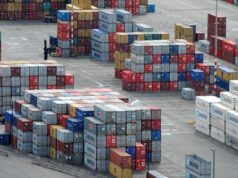
This is the first article in our series on International Supply Chain Management, which will include topics relating to the corporate supply chain environment, supply planning, specifying requirements, selecting suppliers, obtaining offers, negotiating the international contract, contract preparation and management, international logistics, inventory management, performance measurement, environmental purchasing, group purchasing and e-procurement. We will start this series with this article on “Ethics in Purchasing and Supply”.
Importance of Ethical Supply Chain
Ethics – the discipline dealing with what is good and bad and with moral duty and obligation; a theory or system of moral values; the principles of conduct governing an individual or a group; a guiding philosophy (Merriam-Webster Dictionary)
Ethics defines what is good, right or appropriate. When we talk about ethics in the supply chain, we need to clarify what constitutes “ethical” conduct or action? Is being “ethical” the same as being “moral”, or being legally compliant? Conversely, what will constitute as misconduct or malpractice? Who will say that an act is unethical?
And how do you practice ethics in procurement and supply? It is said that one just has to do the right thing — derive no personal gain, reap no favors, don’t give preferential treatment, practice integrity, declare your interests and comply with the rules.
This article provides advice and guidance to supply chain professionals in developing ethical purchasing and supply practices. There are generally two ways to look at the importance of having an ethical purchasing and supply management. For supply chain professionals, this should ensure that they are able to efficiently purchase the right product or service at the right time and place in the most economical way possible and based on the needs or requirements of the customers. For company management, this should protect the rights of workers in the supply chain, the interest of customers, and the reputation and name of the company.
Allowing unethical purchasing practices is to condone unethical behavior and ineptitude, resulting in inefficiencies in the procurement process and overall organizational performance.
From the perspective of globalization and as governments take increasing interest in the ethical trading agenda, ethical supply chain should address issues of human trafficking, slavery and child labor, poor working conditions and labor malpractice; as well as ensure honesty, moral integrity and trustworthiness among people and organizations in the supply chain.
Legal and Compliance Requirements
As a rule, bad behavior in international and domestic trade is generally governed by international standards and national legislation relating to labor, environment, health, and public safety as well as standards established by industries, sectors and those internally established by companies.
Compliance with legal and regulatory requirements is a must and a regular part of due diligence internal audits for most of the multinational companies and local conglomerates.
Corporate Requirements
For corporate ethics, senior management must take the lead and be role models; they must visibly exercise transparency and fairness in their actions. Management must focus on the following:
- The Staff. Organizations behave differently depending on the corporate culture and leadership structure. The staff must exercise professionalism and maintain their integrity in their procurement functions. They must act fairly and properly against third parties, recognizing their rights and dignity by treating them fairly and even-handedly.
- The Process. The company must ensure transparency and efficiency, making the best deal without being influenced by factors such as favoritism, personal gain or conflict of interest.
- The Organization. At all times, the company must maintain its name and reputation consistent with its corporate values, making ensure that the organization maintain its integrity in its actions as guided by appropriate corporate guidelines and policies. Corporate social responsibility may well include environmental purchasing, local and regional purchasing, and support of micro, small and medium enterprises (MSMEs). It must not engage in the arbitrary and unfair use of its power and influence against its vendors and other third parties.
- The Vendors. The vendors must also reflect the company’s thrust towards integrity, transparency and free competition. The best deal must always be made with integrity and with recognition of the rights of all parties in the supply chain. Both buyers and vendors must have a record of transparency and integrity (business-to-business ethics).
For internal standards, companies generally have guidelines on the following:
- Procurement policies
- Vendor accreditation and declaration procedures
- Code of conduct
- HR policy on “whistle-blowing” and reporting misconduct
- Training on integrity and corruption
Professional Requirements
For big companies, the supply chain department has established standards governing its procurement and supply professionals and staffs. These standards may cover the following areas:
- Operating controls and best practices
- Transparency in the procurement procedures
- Accountability of those involved in the process (including those recommending actions and those making decisions)
- Training on awareness and prevention
- Procedures in case of detection
(For part two, go to https://customstrade.asia/supply-chain-management-series-ethics-in-purchasing-and-supply-part-ii/.)
Agaton Teodoro O. Uvero is an international trade, indirect tax (customs) and supply chain expert. He is the Editorial Board Chairman of Asia Customs and Trade, an online portal on customs and trade developments affecting global trade and customs compliance in Asia. ACT provides trade intelligence through industry updates and features; columns written by customs and trade professionals and experts; and specially commissioned reports. For questions, please email him at agatonuvero@customstrade.asia (www.customstrade.asia).












